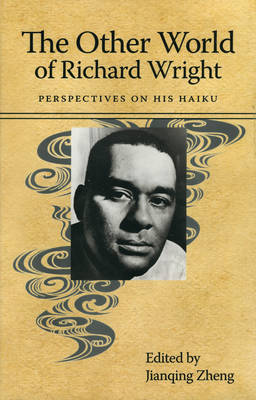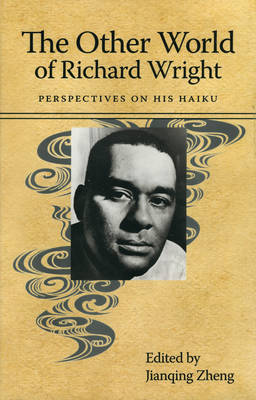
- Afhalen na 1 uur in een winkel met voorraad
- Gratis thuislevering in België vanaf € 30
- Ruim aanbod met 7 miljoen producten
- Afhalen na 1 uur in een winkel met voorraad
- Gratis thuislevering in België vanaf € 30
- Ruim aanbod met 7 miljoen producten
Zoeken
The Other World of Richard Wright
Perspectives on His Haiku
€ 93,45
+ 186 punten
Omschrijving
The Other World of Richard Wright: Perspectives on His Haiku reveals Richard Wright's poetic vision toward the human world. Through the minimal form of haiku, Wright (1908-1960) found his poetic connection to nature. This sensibility displays not only the change in him as a writer but also the tenderness in him as a human being. These essays open up a new territory in Wright studies by tracing the development of Wright's aesthetic and its relationship to African and Japanese cultures. The book tells how haiku offered a therapeutic outlet for Wright in his final two years of life in Paris, explores the influence of Zen Buddhism on Wright's haiku, and delivers a thematic analysis of Wright's haiku. The collection also gives us a focused examination of how Wright's haiku reveal a conflict between nature and culture, how women are exploited for labor and sex by the culture at-large, and how the South in Wright's haiku symbolizes a place full of dreams, memories, hardships, and loneliness with his images of cotton, freight trains, croaking frogs, magnolia trees, and hog-killing.
Specificaties
Betrokkenen
- Uitgeverij:
Inhoud
- Aantal bladzijden:
- 176
- Taal:
- Engels
- Reeks:
Eigenschappen
- Productcode (EAN):
- 9781617030222
- Verschijningsdatum:
- 11/04/2011
- Uitvoering:
- Hardcover
- Formaat:
- Ongenaaid / garenloos gebonden
- Afmetingen:
- 152 mm x 229 mm
- Gewicht:
- 498 g

Alleen bij Standaard Boekhandel
+ 186 punten op je klantenkaart van Standaard Boekhandel
Beoordelingen
We publiceren alleen reviews die voldoen aan de voorwaarden voor reviews. Bekijk onze voorwaarden voor reviews.










